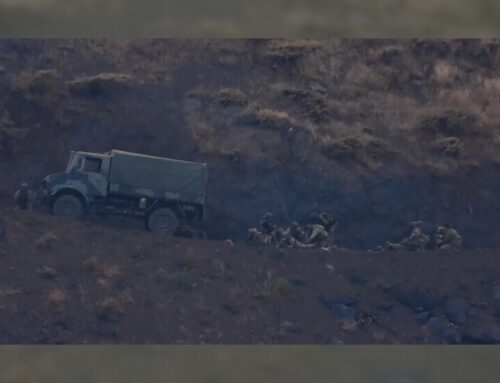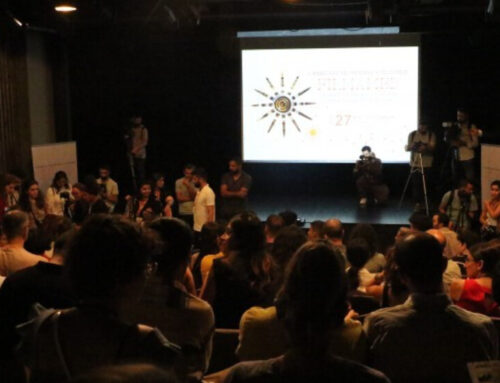North East Syria: Turkish occupation destroys the natural and archaeological treasures of Afrin
North East Syria: Turkish occupation destroys the natural and archaeological treasures of Afrin
- Date: December 25, 2021
- Categories:Culture

- Date: December 25, 2021
- Categories:Culture
North East Syria: Turkish occupation destroys the natural and archaeological treasures of Afrin
In full view of Turkish forces, Turkish-backed factions continue excavating archaeological treasures in the hills of Afrin as well as destroying Afrin's rich nature by cutting down olive trees in Afrin.
Turkey’s occupation of Afrin – identified, as such, by Amnesty International and a number of human rights organisations, human rights defenders, media outlets and inhabitants living in the Autonomous Administration of North and East Syria (AANES) – has not only had catastrophic human and economic consequences, but also caused considerable damage to the environment and the historical sites of the city.
Syrian Observatory for Human Rights (SOHR) activists on Monday reported that Turkish-backed armed groups continued their violations against displaced people and their properties by cutting down trees, selling and taking over their properties by force, imposing levies and committing robberies in Afrin.
In this context, SOHR activists reported that the 112th Brigade imposed levies of 150 olive oil 20-litre tins on people from Baadanli village in Raju district. The 112th Brigade also stole 350 olive trees and imposed levies on four olive pressers of an estimated $10,000.
Moreover, members of the Turkish-backed faction seized 800 olive trees and felled 250 olive trees to sell them as “fire logs for heating.”
At the same time, the Al-Amshat faction has reportedly imposed new levies on the farmers of Sheikh Hadeed district, forcing them to pay 2.5 USD for every olive tree under the guise of “protection taxes.”
These acts of looting olive trees are part of a regular pattern of destroying Afrin’s nature as Turkish-backed armed groups cut at least half-a-million trees and burnt large areas of fields in the region, the Human Rights Organization in Afrin said in a report issued at the beginning of 2020.
There are estimated to be about 18 million olive trees in the Afrin area, down from 26 million prior to the 2018 conflict, according to a 3 March 2021 report by the Assessment Capacities Project (ACAPS), which reported that Turkish-backed SNA factions had heavily impacted families’ livelihoods in Afrin with widespread attacks on farmers as well as acts of expropriation of agricultural tracts, especially linked to olive farming.
Alongside the damage to Afrin’s nature and environment, the historical and archaeological values of Afrin have also been under assault by Turkish-backed factions.
In this context, pro-Turkey factions have continued excavation work and digging in the archaeological hill of Tal Khela, which is located about 3,000 metres away from Afrin city centre, which is registered by the Syrian Antiquities Directorate, according to SOHR.
SOHR reported on Monday that the archeological area was exposed to acts of sabotage, where most of the hill was removed by heavy diggers and earth-moving machinery. In addition, excavation work expanded into the city’s limits, in the plain neighbouring the hill.
According to SOHR sources, the excavation work has been in progress since 22 November, in full view of Turkish military forces.
Since the full capture of Afrin was announced on 18 March 2018, Turkish and Free Syrian Army (FSA) fighters have been engaged in vandalism and looting archeological and religious sites in the Afrin region, including cemeteries in Jindaris and Kafr Safra, a mosque in Jalame, an Alawite shrine in Mabatli, and the archaeological site of Ain Dara, according to a report based on research conducted by the ‘Safeguarding the Heritage of the Near East Initiative,’ funded by the US Department of State.
The number of sites affected by these illegal acts reached about 35 out of 92 sites, according to the Violations Documentation Centre in northeastern Syria.
Also, in 2018, Turkish air strikes seriously damaged Ain Dara site, a Neo-Hittite temple which was built by the Arameans in the first millennium BC.








Leave A Comment